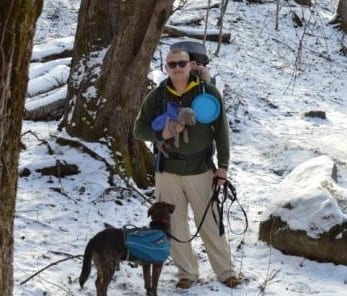Opinion: Translating your military skills to the real world
Any recruiter will be the first to tell you how polished your resume will look and how in demand you will be in the civilian world. Some of it’s true, and some of it’s not.

Each American Flag planted was used to represent the number of lives lost on Sept. 11.

Any recruiter will be the first to tell you how polished your resume will look and how in demand you will be in the civilian world once you leave the military.
Some of it’s true, and some of it’s not.
Working in your favor is the fact that the general public is so high on service members right now, but that doesn’t mean you can walk into any job and start receiving paychecks without asking any questions.
A recently separated veteran once told me about his job interview to work as a gas station clerk. The interviewer asked him something along the lines of “what qualifications do you have to run the register?”
His replied, “If someone tries to rob the place I know how to kill them with my bare hands.”
Needless to say, he did not get the job. He then went on a rant about how he did not learn a thing about the real world throughout his time in the military.
I will be the first to be critical about some of the ways the military works. In fact, I think most veterans should include “extensive complaining” and “janitorial experience” on their resume. That second one I just threw in to give you an example of one thing I probably complained about the most.
Now having time to reflect on my service, the positives are becoming easier to see.
Everyone knows the clichés: leading troops, being a hard worker and always on time. If recruit training or officer candidate school is where those are instilled, I still have a hard time connecting the dots between running outside in my “whitey tighties” while carrying my mattress and being a highly qualified job candidate.
But somewhere along the way you do actually change. Whether it be from forced repetition or an actual realization, you do pick up some intangible qualities employers are looking for. You just have to make sure to highlight the right experiences and translate them to the civilian world. Some jobs in the military don’t have very many civilian equivalents. This is where these intangible qualities come in.
All I am saying is you should never stop learning from your experience, and never stop reevaluating it. Maybe with a little hindsight you will figure out something new. A lifetime of experiences and responsibility can be packed into an enlistment, and it is up to you to make yourself more marketable.
There are lots of resources out there to not only help with job placement but to help translate job specific experience to a civilian resume. Also, verse yourself in the incentives for employers, veterans preference programs, tax breaks and various others. It can only help you, and you cannot assume employers already know about them.
Whether you were in infantry, an engineer or anything else, you likely held more responsibility than that of your peers at home during that time, which at the very least, puts you ahead of them.
Brandon is a senior in the College of Communications, majoring in Journalism and Electronic Media. He is finishing his last semester through distance education from Virginia Beach, Va.
Edited by Maggie Jones
